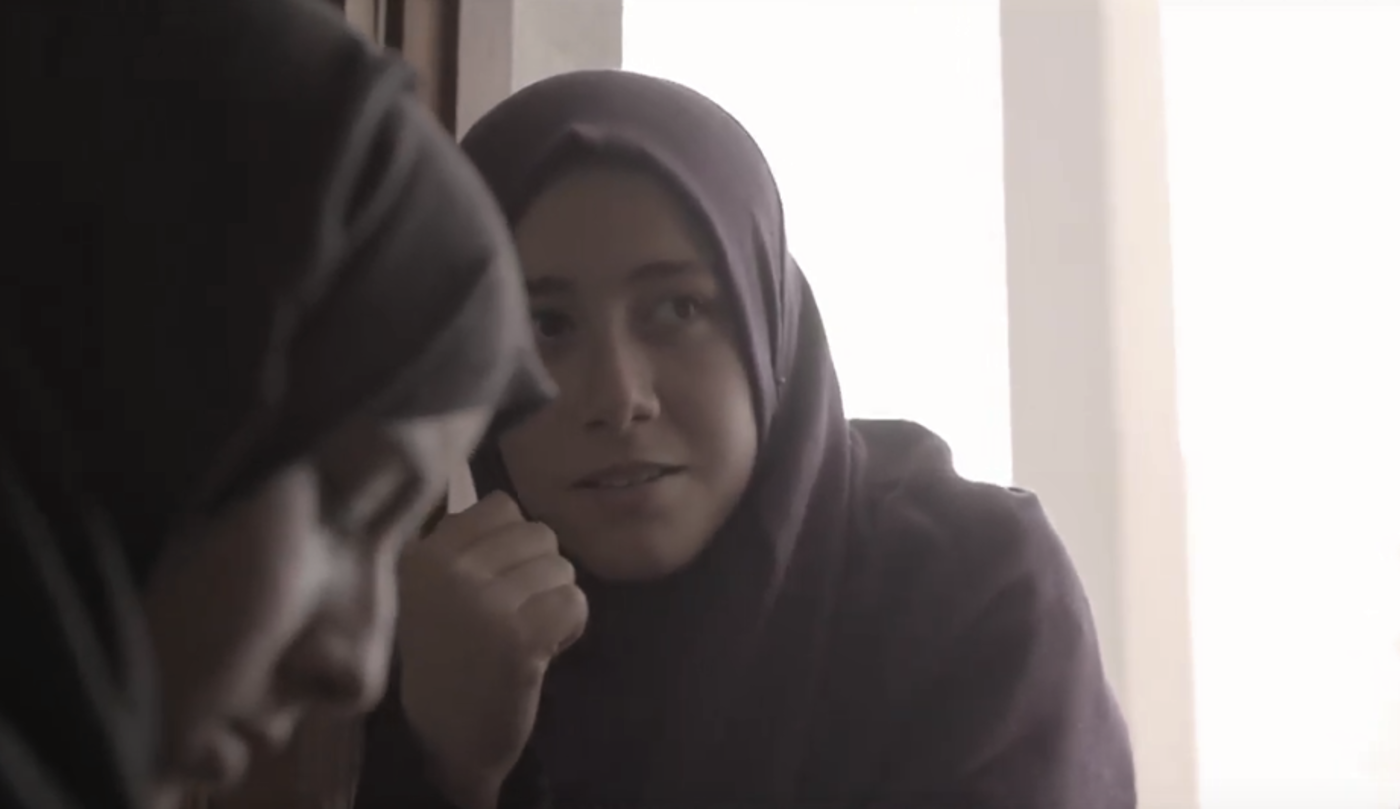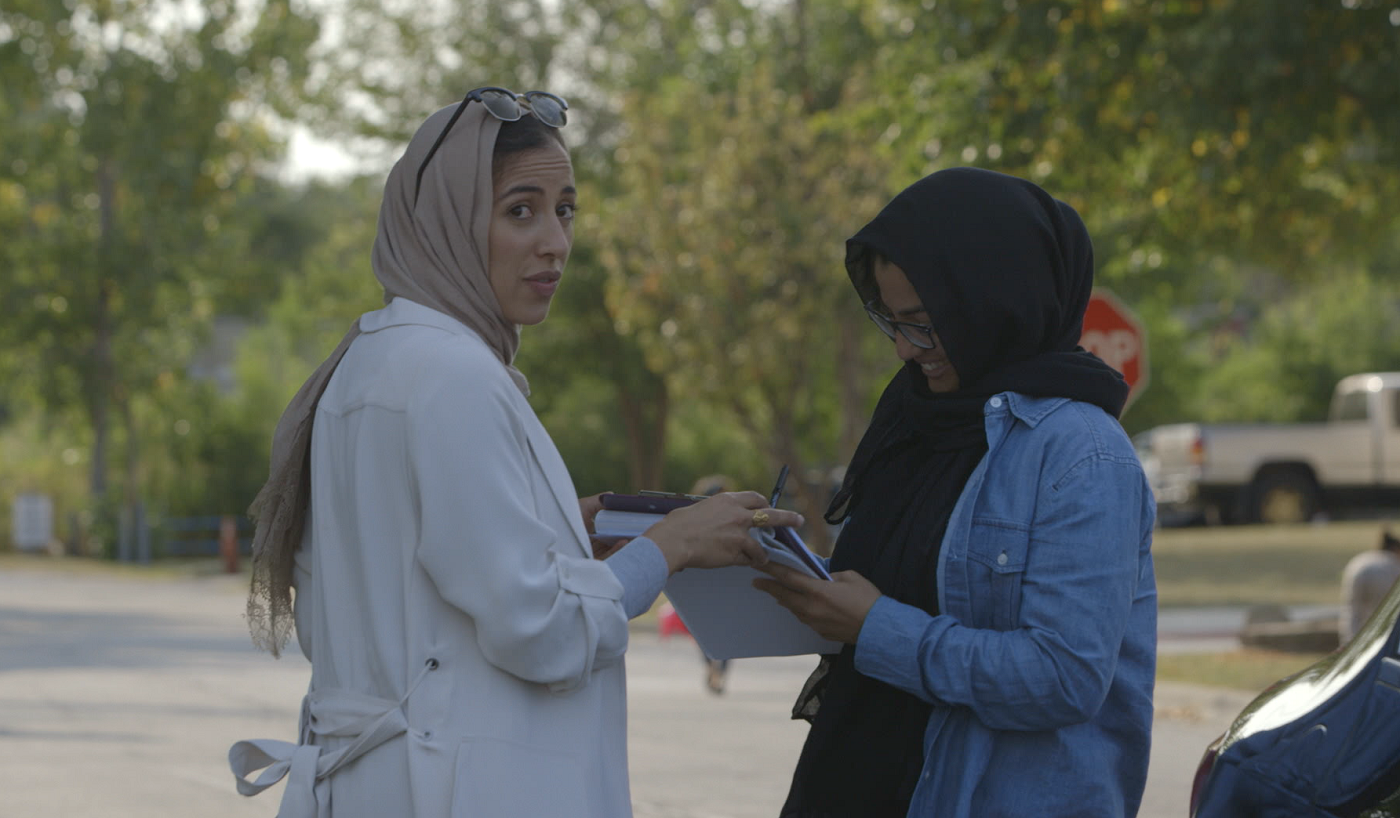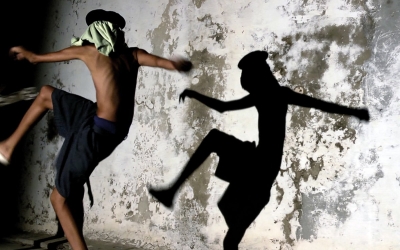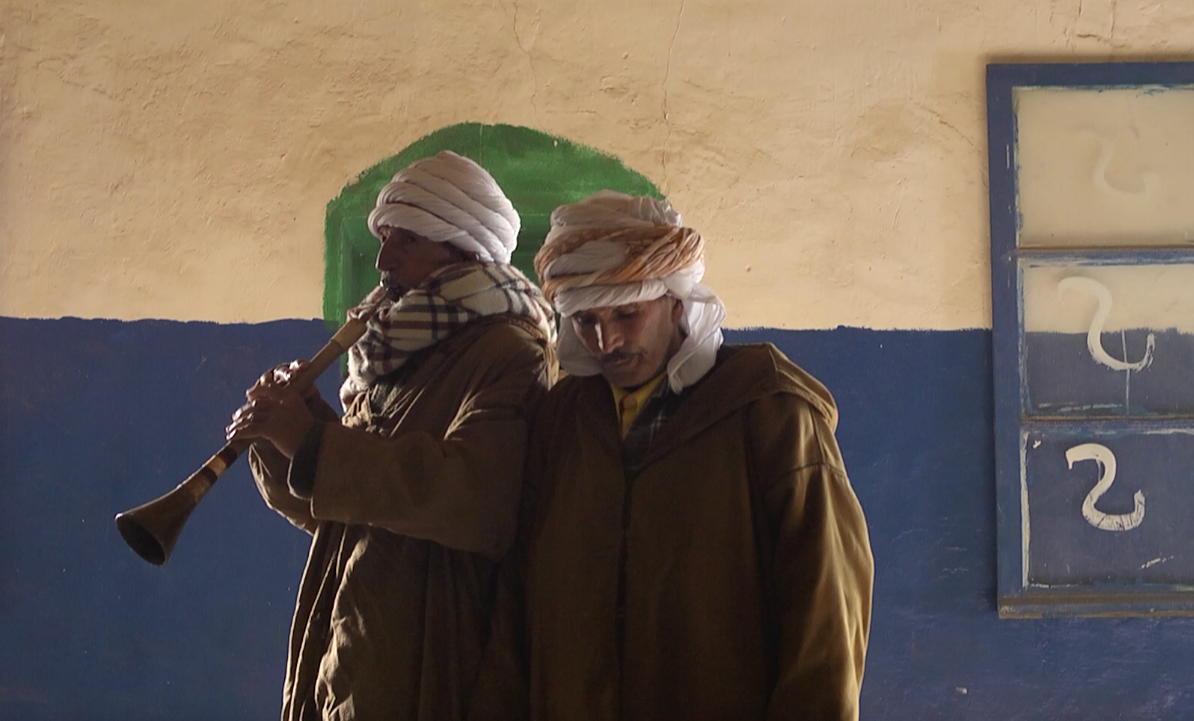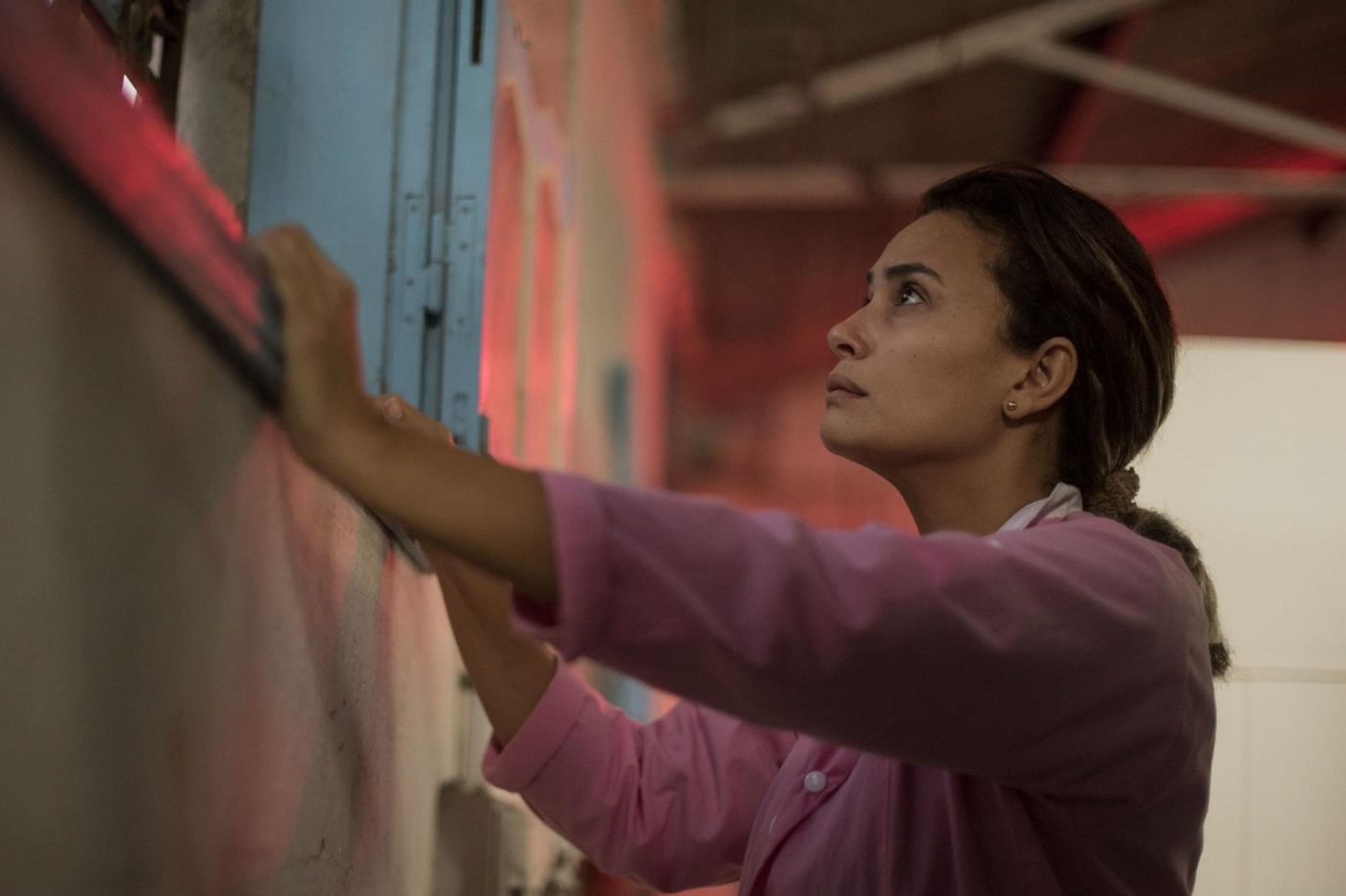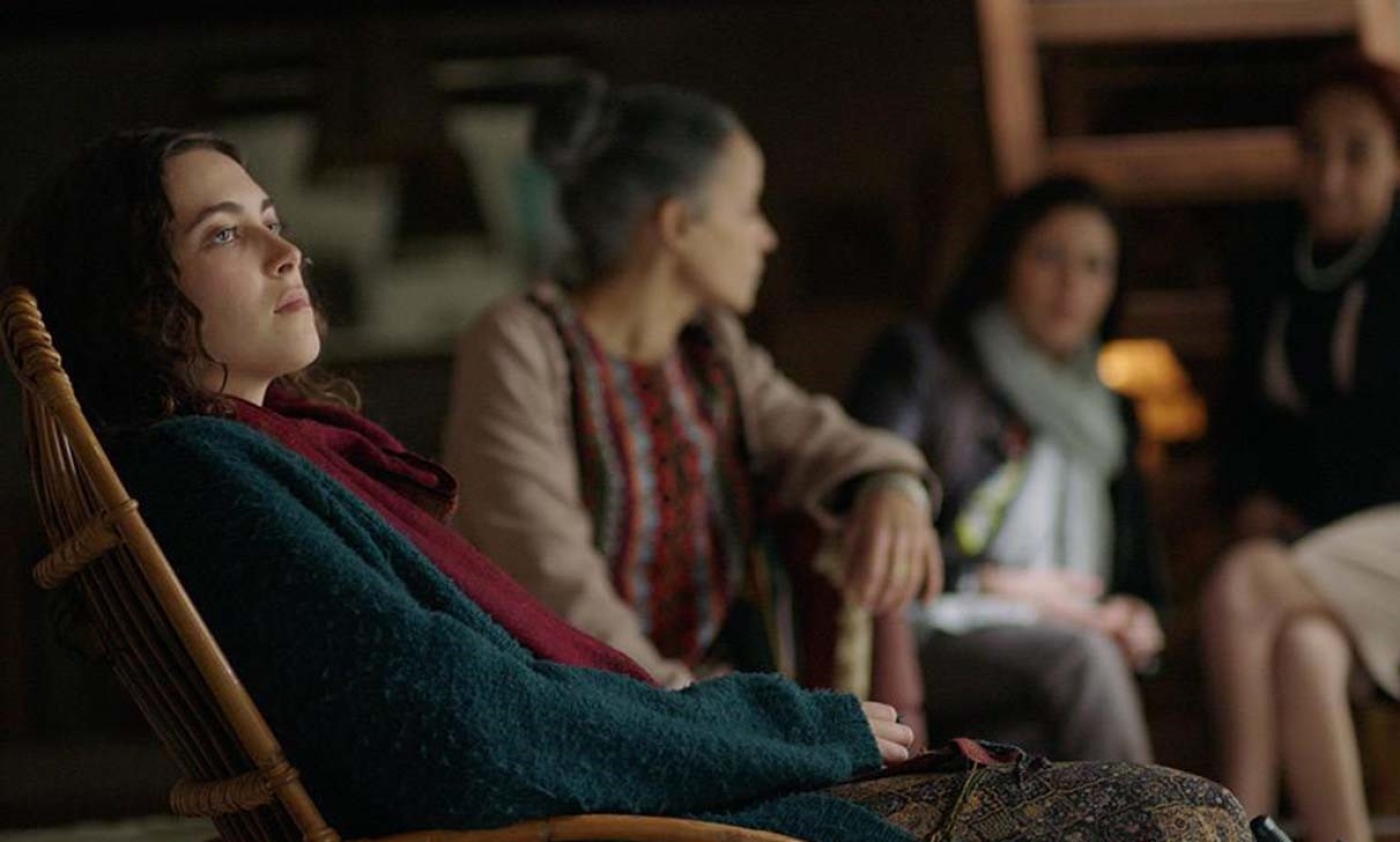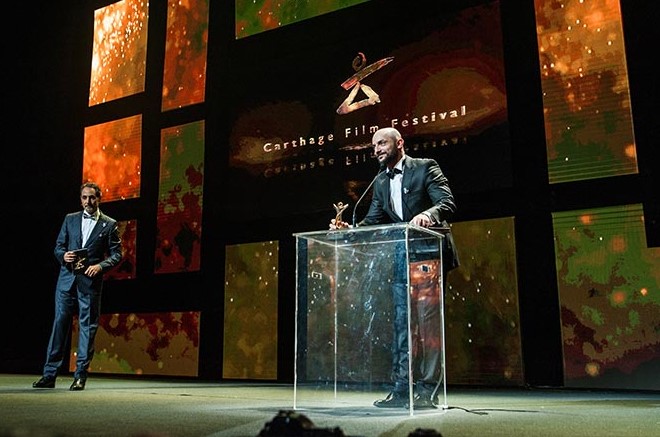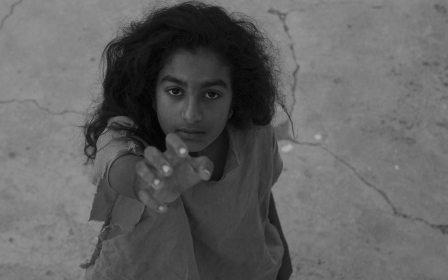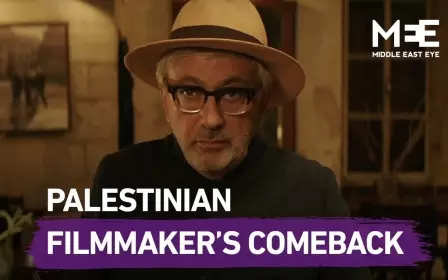Films and fury: The festival that sparks passion and anger
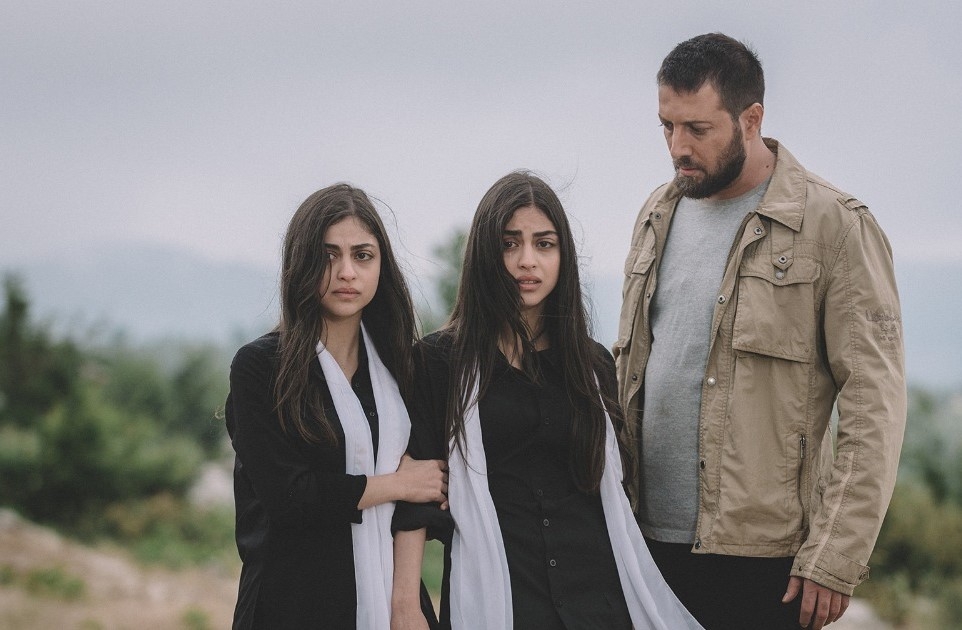
The Carthage Film Festival is unlike any other. Unpredictable and unruly, it’s unquestionably one of the most exciting cinema events in the Middle East as well as a reflection of Tunisian society at large. But even by it standards, this autumn’s edition of the Journees Cinematographiques De Carthage - or JCC as it’s commonly known - was anything but predictable.
Take the screening of Fatma Riahi’s A Haunted Past, an Al Jazeera-produced documentary. It focuses on Tawfik, a Tunisian who fought against the Serbs in Bosnia, where he met his wife Marcida.
After her husband was arrested and tortured by the Tunisian authorities amid accusations of terrorism, Marcida and her daughters fled the capital for Sidi Bouzid. There, Riahi's mother sheltered the family for four years. But then Marcida and the girls abruptly vanished. Riahi's feature tries to trace them.
The documentary, screened in front of a packed 800-seat audience, began in benign fashion but had turned into a political debate even before the closing credits rolled.
New MEE newsletter: Jerusalem Dispatch
Sign up to get the latest insights and analysis on Israel-Palestine, alongside Turkey Unpacked and other MEE newsletters
The first audible reaction came less than halfway through, when Tawfik claimed that Tunisia “is no longer a state. It’s a jungle”. In response, a young woman in the audience shouted to cheers: “Tunisia is an independent and proud state!”
Minutes later, Tawfik said that that all he wanted was “an apology from the government, and let bygones be bygones”. That was met by a yell of: “No reconciliation with terrorism!"
When the screening finished, a supporter of Tawfik's screamed that people like his friend “did nothing". He had barely reached the end of his sentence before the replies fired back, including: “But look at how you treat your women!” - a reference to how the documentary shows Tawfik's descent into a jealous, abusive misogynist.
A Haunted Past may lack artistry but it does make for an engrossing character study, its strength lying in the moral challenges that Riahi throws at the audience. This is a piece that divides reaction and provides no easy answers.
Two days later, some of that same passionate and enlightened crowd chose Joud Said’s toxic, pro-Assad feature Between Brothers (Negmet El Sabah) as the best film of the festival.
In 20 years of festival-going, this writer has never witnessed anything like it. But then that's Carthage.
Carthage: a festival like no other
JCC was launched by film-maker Tahar Cheriaa in 1966, making it the oldest film event in the Arab world and Africa. Over the years it has been revered for extensive funds for Arab productions, lavish monetary awards and a seriousness about developing cinema.
Some of the biggest names in Arab and African cinema have received the Golden Tanit, its top prize, including Youssef Chahine, Ousmane Sembene, Souleymane Cisse and Moufida Tlatli.
Financed by Tunisia’s Ministry of Culture, red tape and internal conflicts are integral to its DNA. It also explains why the JCC festival took a major hit at the turn of the century, losing its edge amid a wave of high-end Gulf festivals such as Abu Dhabi and Doha Tribeca.
A much-needed revamp began with the appointment of distinguished producer Dora Bouchoucha as director from 2008 until 2015.
Innovations included Carthage Pro, the event’s industry arm, which awards grants for films at different stages of production and is among the strongest finance sources in the region; the Carthage Talks masterclass series; and Carthage Digital, with its focus on technological advances in storytelling.
Perhaps most heartening this year was the JCC In Prisons initiative, whereby film-makers screened films in jails, then discussed them afterwards with inmates.
The JCC doesn’t lack ambition - but that is sometimes darkened by the shadow of state bureaucracy. Disorganisation has always been Carthage’s achilles heel, in part due to the lack of harmony between the festival’s different divisions.
This year, problems included glaring glitches in the opening ceremony, accommodation problems and no priority access for industry guests for screenings. In that regard, the JCC reflects Tunisia, with its weak infrastructure and struggling economy.
But enter into one of the packed cinemas and all is forgotten. Carthage is, first and foremost, an audience festival, a grand celebration of cinema in the biggest cinephile nation in the region, as the bustling streets around Habib Bourguiba Avenue are transformed into a colony for fans queueing for the numerous screenings taking place around the Africa Hotel.
Despite Tunisia’s economic woes, cinema is still deeply ingrained in its social landscape. This year, when the minister of culture, Mohamed Zine El Abidine, announced that the state film grant has been doubled from $1.4m to $2.8m, there were no protests nor accusations against giving public money for what many in the region might deem a luxury.
Judging by the mood at the festival, many seemed to have grounds for optimism about wider Tunisian society, including improvements in women’s rights and the election of a new president. Scepticism may still be in the air, but it is now at least tempered with a sense of pride.
This confidence was especially evident in the various strands of Carthage Pro, which is wholly managed by women. In a short span of time the sidebar has attracted key industry figures and programmers from the world’s top festivals, networking and engaging in the type of politically open discussions that are rarely witnessed in the region.
The film programmes of most Arab festivals are easy to dissect: they are, after all, essentially extensions of how each event defines itself while mirroring its guiding politics. The JCC programme, by comparison, is a head-scratcher. It doesn’t reflect any discernable politics.
This year it contained a profusion of hidden gems, particularly Algerian-American Assia Boundaoui’s The Feeling of Being Watched, a searing investigative record of the surveillance used by the FBI on her Arab-American neighbourhood in Chicago; and Algerian-French Dorothee-Myriam Kellou’s In Mansourah You Separated Us, a haunting documentary about the displacement of two million Algerians, including the director’s father, by the French during the war of independence.
But there were also copious disposable fillers whose mere selection puts in doubt the festival’s curatorial vision, including Les Egares, Said Khallaf’s shoddily produced, unintentionally laughable Moroccan melodrama; and Tamer Ezzat’s insufferably sappy Egyptian musical When We’re Born. If JCC’s intention is to provide a wide spectrum of Arab cinema, showing the very best with the very worst, then it certainly succeeded.
Tunisian women on and off the screen
The big winner at JCC was Hinde Boujemaa’s feature debut Noura’s Dream, a scorching love triangle that won the Golden Tanit for best narrative film and best actress (Hend Sabry, Tunisia’s biggest film star). Set in working-class Tunis, Sabry is Noura, the down-on-her-luck wife of Jamel, an abusive hoodlum, who falls for Lassad while her husband is in prison. Before she files for divorce, her husband is released, sparking a convoluted cat-and-mouse game between the petty male egos and the aggravated wife.
Thematically, Boujemaa offers little variation on habitual North African stories about beleaguered women striving for unattainable freedom in a society ruled by egotistical, insecure men. But what a towering performance Sabry delivers. What an emotional roller-coaster this drama evolves into.
Boujemaa wears her feminist creed on her sleeve without entirely demonising her male characters or absolving her heroine from responsibility for the misery that has befallen her.
This banquet of searing emotionality is pure entertainment, by turns garish, uncompromising and deliciously nasty. It makes for a confidently realised, addictively watchable battle of the sexes that acknowledges our instinctive attraction to the monstrous and the extreme without exploiting the characters’ travails.
A different portrait of Tunisian women is offered with The Scarecrows, by veteran Tunisian director Nouri Bouzid, who has won the Golden Tanit twice. It’s a subtle and moving, if imperfect, look at the psychological damage endured by two Tunisian women sold into sex slavery to Islamic State in Syria, and their subsequent battle to readjust to life back home.
Similar in tone and theme to Golden Horseshoes, Bouzid’s 1989 sophomore feature, The Scarecrows (Les Epouvantails) is a signature study of trauma and a portal into the lives of psychologically paralysed characters rejected by their judgmental, chauvinist society.
Admirably deviating from the sensationalist and oversimplified chronicling of the topic, it is Bouzid’s best production in more than a decade. Replete with haunting moments, it doesn’t entirely reveal its characters’ motivations, instead adopting a fractured narrative whose core strength is its evocation of its characters’ invisible agony, aided by a surprising vitality courtesy of Hatem Nechi’s handheld camera and penetrative close-ups.
Performances however are uneven. Afef Ben Mahmoud’s is controlled and understated as the women’s lawyer, becoming the moral centre of the narrative as well as a demonstration of Tunisia’s new-found female empowerment. But the actresses playing the abducted women are less accomplished: Nour Hajri’s powerful silent anguish is undermined by some superfluous scenes, while Joumene Limam, as the near-mute Djo, looks lost throughout.
The Scarecrows is inherently bogged down by an intrusive didacticism that hampers its emotional charge and disturbs its rhythm. Ultimately, Bouzid succumbs to the temptations of literalism, rendering his comeback feature a flawed if still potent work whose parts are greater than its sum.
Said: a controversial choice
Finally there is the aforementioned Between Brothers, the sixth film from Syrian director Joud Said who, in recent years, has been regarded by many as an ambassador for the Bashar al-Assad regime at the handful of Arab festivals which find virtues in his artless cinema.
In 2017, Syrian director Samer Ajouri withdrew The Boy and the Sea, his animated short, from Carthage in protest at the selection of Said’s feature, Rain Of Homs. And in 2018, Egyptian director Kamla Abu-Zikry, a member of Carthage’s competition jury, accused Said of making films which represented the Assad government’s viewpoint.
In response, Said told Al Watan, a Syrian Arabic-language newspaper, in July 2019 that censorship in Syria was limited. “The artist is always an adversary to power, and if I did excessively praise [the government], I would be in a very different place than I am today. My relationship with people in power is built on mutual respect. My beliefs are not in praise of anyone.”
And in October he told the Egyptian news site Masrawy that the situation in Syria was much better than it was five years ago. “I hope that colleagues will return, as some have already started coming back,” he said.
Produced by Syria’s state-funded General Organisation of Cinema, which also assisted with locations and facilities, Between Brothers focuses on two siblings (Mohammed Al-Ahmad and Lujain Ismael) on different sides and the abduction of the fiancee of one (Aliaa Saeed) by sadistic anti-government forces.
Said tries to temper his blunt and malignant narrative by showing each side has reasons for the course it follows. Yet there is no confusing who is good and who is bad. Syria here is a peace-loving picturesque village until evil disrupts the harmonious bliss. There is no evidence of any state security forces; the only violence is by the rebels. There are only two life choices: a peaceful existence sustained by an invisible, passive state, or the terror adopted by everyone else.
Blatant symbolism relegates the nine-year-old conflict to a cheap melodrama, a cautionary tale on the misery that enemies of the state have brought upon a tranquil Syria. This is film which resembles the work of a high-schooler overdosing on Turkish soap operas, with its broad brushstroke narrative and over-dramatic performances. It would rank as a so-bad-it’s-good flick were the subject not so tragic and serious.
Listening to the bellowing laughter at a screening of Between Brothers felt like dancing on the graves of the hundreds of thousands butchered in Syria
More appalling still is the insensitive and infantile use of comedy. Said believes that his comedy is an impassioned commentary on the absurdity of war - but absurdity requires tact, intelligence and thoughtfulness. They are all lacking from a crass picture infused with fart jokes.
Listening to the bellowing laughter at a screening of Between Brothers at Carthage felt like dancing on the graves of the hundreds of thousands butchered in Syria, making for one of the most distressing and repulsive experiences at the movies.
This is now the third consecutive year that a film by Said has appeared in Carthage’s main competition, a puzzling decision which legitimises a director whose oeuvre risks becoming a grand apology for one of the 21st-century’s most bloodthirsty regimes.
Why include it in the lineup at JCC? It can’t be that Carthage is pro-Assad: the festival also screened the lauded documentaries For Sama and The Cave, this year’s most damning indictments of Assad’s crimes. Said's work has also played at events at the Alexandria International Film Festival and the Cairo International Film Festival (Between Brothers screens at Cairo this week). It leaves a sole sour note at an otherwise magnetic and enticing Carthage, whose potential and parameters continue to expand with every passing year.
Middle East Eye delivers independent and unrivalled coverage and analysis of the Middle East, North Africa and beyond. To learn more about republishing this content and the associated fees, please fill out this form. More about MEE can be found here.


